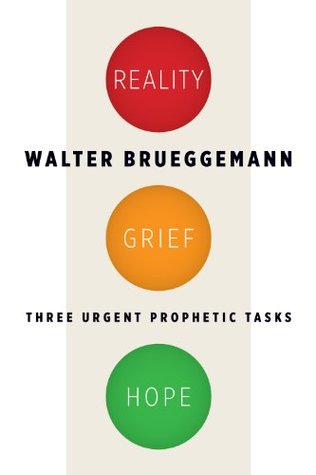More on this book
Community
Kindle Notes & Highlights
The destruction of Jerusalem in 587 b.c.e. at the hands of the Babylonians constituted the defining experience of ancient Israel given us in the Old Testament.
The ark is the icon of the old covenantal tradition vouching for the presence of YHWH; but that icon has now been preempted by the Jerusalem establishment as an emblem of its legitimacy.
The prophets are voices of unrelenting realism in the face of deceiving ideology.
Prophetic realism is always juxtaposed to ideological deception.
That militarization of our society, in the name of security or of patriotism, serves to assure perpetual war in order to maintain supremacy in the world.
If you wish to understand U.S. domestic and foreign policy since World War II, even World War I, and if you wish to know why the U.S. will seek to exercise imperial power for the foreseeable future, no matter who is president, you need understand only one thing: the exacting requirements of U.S. American affluence. Both Presidents Bush have said exactly the same thing, the first at the Earth Summit in 1992, the second after September 11, 2001: “The American way of life is not up for negotiation.” They were not aberrant in this, or partisan. We will do all we need and can to keep the American
...more
To some great extent, I judge that our society lives in a bubble of illusion that is addicted to certain ideas that are remote from the lived reality that is all around us. In our situation, I judge, much like that of ancient Jerusalem, we are unable to see, to notice, or to take seriously the social reality in front of us.
The prophetic task, in our contemporary society as in ancient Jerusalem, is to counter the governing ideology, in both cases that of exceptionalism.
The task of the prophetic church, it follows, is to bear witness to the irreducible reality of God and the irreducibility of the neighbor as the reference points for a viable life in the world that even exceptionalism cannot nullify.
Or perhaps it was the inexorable outcome of policies of abuse and exploitation in which widows, orphans, and immigrants — the canaries of any social system — had suffered enough.
widows, orphans, and immigrants — the canaries of any social system
The Jeremiah tradition affirms the agency of YHWH against Jerusalem in a way that will violate exceptionalism.
the prophetic task now, in contemporary U.S. society, is exactly to perform hope that is characteristically a tenacious act of imagination, grounded in a dream, song, narrative, or oracle, rooted in the elusive but faithful authority of God. The prophet is the one who dares to speak such a future that is out beyond all evidence. The work is not simply to reiterate old acts of hope, but to be informed by such old acts in order to perform acts that may be grounded in divine initiative.
These two narratives, which may be variously characterized, I identify as: 1. the totalizing narrative of the empire, and 2. the particularizing narrative of the neighborhood. The two narratives are intermingled and confused among us in ways that produce tension and conflict.
Jesus, unlike most responsible American citizens, appears to do no work, and is accused of being a glutton and a drunkard. He is presented as homeless, propertyless, celibate, peripatetic, socially marginal, disdainful of kinsfolk, without a trade, a friend of outcasts and pariahs, averse to material possessions, without fear for his own safety, careless about purity regulations, critical of traditional authority, a thorn in the side of the Establishment, and a scourge of the rich and powerful.
the sequence of ideology-denial-despair and the counterpoint of realism-grief-hope may strike one as much too schematic. I do not intend it as a rigid scheme, but only as a general guide for the way in which human persons and human communities move through the process of loss and recovery.
Jeremiah is the great voice of realism against the ideology of Jerusalem. • Lamentations is the most compelling performance of grief that precludes denial in that ancient tradition. • 2 Isaiah is the best known and most eloquent voice of hope in ancient Israel that counters despair.
the analogy for the destruction of ancient Jerusalem in 9/11 is imperfect at best. But I find, nevertheless, that the analogy works, because in the latter case as in the former, the crisis is that the destruction attests the failure of the ideological claim of invulnerability grounded in exceptionalism. Thus I have suggested that 9/11 is a symbol and an epitome of the wide and deep loss now faced in our society that requires rethinking from the ground up.


